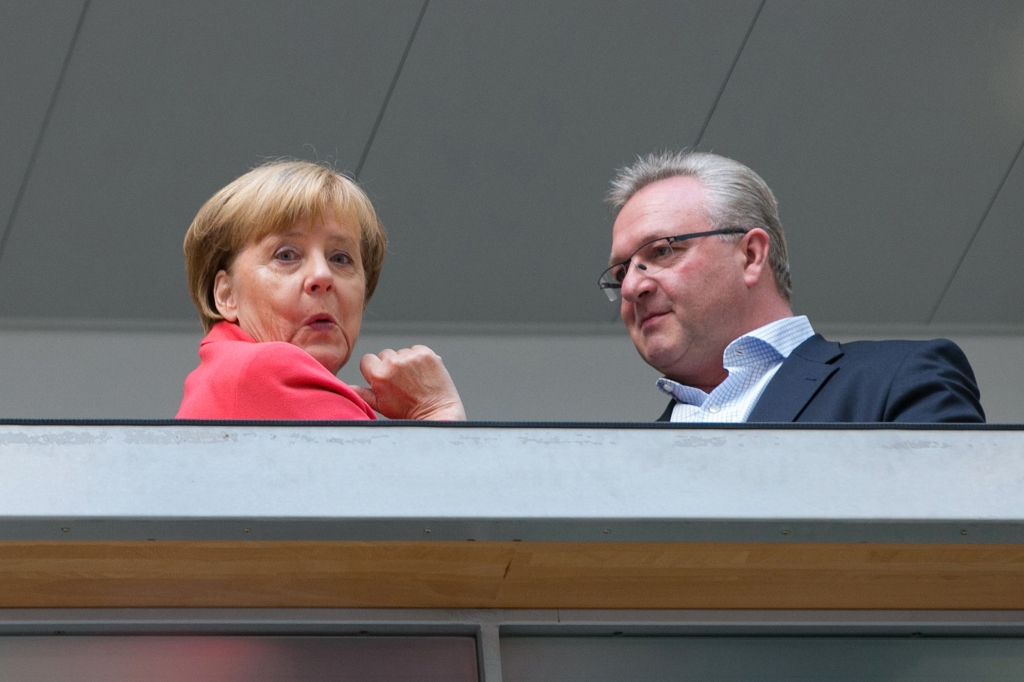-
Tips for becoming a good boxer - November 6, 2020
-
7 expert tips for making your hens night a memorable one - November 6, 2020
-
5 reasons to host your Christmas party on a cruise boat - November 6, 2020
-
What to do when you’re charged with a crime - November 6, 2020
-
Should you get one or multiple dogs? Here’s all you need to know - November 3, 2020
-
A Guide: How to Build Your Very Own Magic Mirror - February 14, 2019
-
Our Top Inspirational Baseball Stars - November 24, 2018
-
Five Tech Tools That Will Help You Turn Your Blog into a Business - November 24, 2018
-
How to Indulge on Vacation without Expanding Your Waist - November 9, 2018
-
5 Strategies for Businesses to Appeal to Today’s Increasingly Mobile-Crazed Customers - November 9, 2018
German leader’s party suffers Berlin election setback
Mass migration from trouble spots in the Middle East was cited as the main reason why the United Kingdom to vote to leave the European Union, now it looks as though the leader of the Christian Democratic Union part (CDU) is going to lose support from the German people as support for the CDU in Berlin has slumped to its lowest level since 1990.
Advertisement
The losses for both the biggest parties point to the further fragmentation of Germany’s political landscape, raising the possibility of different coalitions in future.
She warned that if the established parties don’t manage to gain support by the national elections next year: “I fear for the good and peaceful future of our country”. Protesters met Merkel with boos as she gave her speech last week.
However, Merkel did not distance herself from her decision last September to keep open Germany’s borders to thousands of refugees stranded at Budapest’s Keleti station.
Due to heavy losses for CDU and SPD in the Berlin vote, the parties do not have enough support to continue a coalition government together.
The SPD won 23 percent of the vote, dropping 5.3 percent, while the CDU won 18 percent, down 5.4 percent, ARD public television reported.
“The voters don’t realize that they’re going to vote for a party that doesn’t want to differentiate itself from the extreme right”, said Josef Schuster, president of the Central Council of Jews in Germany.
The Berlin SPD has worked before in the capital’s city-state government with the Linke, heirs to the East German communists, but has always refused to entertain such an alliance at federal level.
German Chancellor Angela Merkel considers backing down on her open-door refugee policy after taking the blame for her party’s declining popularity.
“She remains the strongest most stable politician not only in Germany, but arguably, Europe”.
Speaking after the results, Mrs Merkel acknowledged “very bitter” losses for her party, and reflected on the German response to the refugee crisis a year ago.
“In the balance it was absolutely right”, to provide refuge for the waves of migrants, Merkel said in a lengthy statement on the refugee crisis.
Left-leaning Die Tageszeitung newspaper sees CDU’s descent as an opportunity for a different sort of “alternative for Germany”, namely a grand coalition of the left, rather than the right-wing alternative AfD proposes.
The CDU was defeated by the AfD in the chancellor’s home state of Mecklenburg-West Pomerania two weeks ago.
During his campaign, Berlin Mayor and Social Democrat Michael Mueller compared a strong AfD result to a resurgence of Nazism in Germany.
“We’ve arrived in the capital”, said the party’s co-leader Beatrix von Storch, hailing the “huge success”.
Advertisement
AfD has been dogged by revelations about members espousing extremist views and having ties to far-right groups – including two candidates who stood for the party in Berlin.





























